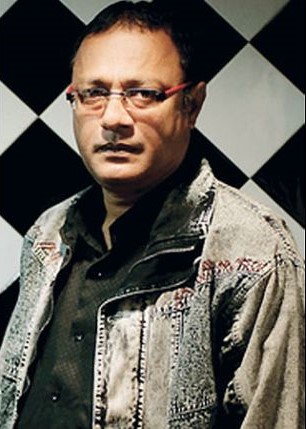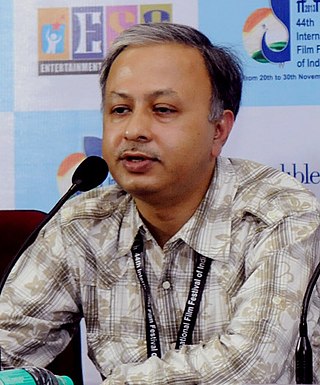
Tulu is a Dravidian language whose speakers are concentrated in Dakshina Kannada and in the southern part of Udupi of Karnataka in south-western India and also in the northern parts of the Kasaragod district of Kerala. The native speakers of Tulu are referred to as Tuluva or Tulu people and the geographical area is unofficially called Tulu Nadu.

Dakshina Kannada district is located in the state of Karnataka in India, with its headquarters in the coastal city of Mangalore. It is part of the larger Tulu Nadu region. The district covers an area nestled in between the Western Ghats to its east and the Arabian Sea to its west. Dakshina Kannada receives abundant rainfall during the Indian monsoon. It is bordered by Udupi district to the north, Chikmagalur district to the northeast, Hassan district to the east, Kodagu to the southeast and Kasaragod district of Kerala to the south. According to the 2011 census of India, Dakshina Kannada district had a population of 2,083,625. It is the only district in Karnataka state to have all modes of transport like road, rail, water and air due to the presence of a major hub, Mangalore. This financial district is also known as the Cradle of Indian banking.
The Bunt people are an Indian community who historically have inhabited the Tulu Nadu region in South India. Bunts were traditionally a warrior-class or martial caste community, with agrarian origins, forming the landed gentry of the region. They are the dominant land-owning and farming community of Tulu Nadu, and speak Tulu as well as Kundagannada as their mother tongue. Today, the Bunts are a largely urbanised community, with a population size of less than one million worldwide.

Naayi Neralu is a 2006 Indian Kannada language film directed by Girish Kasaravalli, based on a novel of the same name by writer S. L. Bhyrappa and has Pavitra Lokesh in the lead role.
Ruchi Narain is an Indian film director, screenwriter, and producer widely known as the writer for the critically acclaimed film Hazaaron Khwaishein Aisi (2003). She has also directed films like Kal: Yesterday and Tomorrow (2005), Hanuman: Da' Damdaar (2017) and Netflix original film Guilty (2020).
Osian's-Cinefan was one of Asia's leading film festivals devoted to Asian and Arab cinema, and was part of Osian's Film House Division. The festival celebrated its 10th anniversary in July 2008. After a two-year break, the 12th staging of the festival took place in July 2012. It has been discontinued since.
Neville Tuli is the Founder Chairman of the Osian’s" Group of companies. The Group includes the Parent Company, Osian’s Connoisseurs of Art Pvt. Ltd. and its two Subsidiary Companies, being "Osian’s Cinematic Pvt. Ltd." and "Osianama Learning Experience Pvt. Ltd.".

Ramchandra P. N. is a filmmaker making feature films, short films, documentaries and TV programs. in India. He is a Tuluva based in Mumbai.

Cinemaya is a film magazine established in 1988 devoted exclusively to coverage of Asian film. It is published in New Delhi, India, and distributed internationally. The present editor-in-chief of Cinemaya is Aruna Vasudev, noted film journalist. Its goals are to promote Asian filmmaking internationally and to help Asian national cinemas gain wider international recognition.

Kantatar is a 2005 Bengali film directed by Bappaditya Bandopadhyay, and featuring Sreelekha Mitra, Sudip Mukherjee, Rudranil Ghosh. It received NETPAC Award at Vesoul International Film Festival of Asian Cinema, 2007 for its deceptively simple style with which the complex situation of people trapped in a state of permanent displacement is exposed.

Putaani Party is a 2009 Kannada language feature film. Produced by Children's Film Society, India, the film was shot in a village called Honnapura situated near the town of Dharwad in South India. The film uses local actors, most of them first timers who are new to the medium of films. The film has a particular dialect of Kannada that is spoken by a few in that part of India.
Vartul (transl. Circle) is a 2009 Indian short film written and directed by Santosh Ram and produced by Vivek Chitra Production & Mokal Films.

Madhusudhanan is an Indian film maker and artist, also known as K. M. Madhusudhanan. His debut feature film, Bioscope has received many awards. He is working with different media in art, including sculpture, printmaking installation art and film.

Tulu cinema, also known as Coastalwood, is a part of Indian cinema. The Tulu film industry produces five to seven films annually. The first Tulu film was Enna Thangadi released in 1971. Earlier, these films were released in theatres across the Tulu Nadu region. Tulu film industry has grown to such an extent that films are being released simultaneously in Mangalore, Udupi, Mumbai, Bangalore and Middle East. The critically acclaimed Tulu film Suddha won the award for the best Indian Film at the Osian's Cinefan Festival of Asian and Arab Cinema held in New Delhi in 2006. In 2011, the Tulu film Industry got a second lease of life with the release of the film Oriyardori Asal. The film turned out to be the biggest hit in Tulu film history to date. Chaali Polilu is the longest running film in Tulu film industry. This movie is the highest-grossing film in the Tulu film industry. It has successfully completed 470 days at PVR Cinemas in Mangalore.

Anjan Das was an internationally acclaimed National Award-winning film director, screenwriter, and producer known for his contribution to Indian parallel cinema. His films were designated as 'poetry on celluloid', a descriptor used by the critics post his lyrical masterpiece 'Saanjhbatir Rupkathara'. His films won 11 BFJA awards and were regularly showcased at A-list film festivals like BFI London, Rotterdam, IFFI, Brisbane, etc.

Ekhon Nedekha Nodir Xhipare is a 2012 Assamese language socio-political thriller film, with some dialogue in Hindi, starring Sanjay Suri and Bidita Bag in the lead roles. It was directed by Bidyut Kotoky and produced by National Film Development Corporation of India. The film was simultaneously made in Hindi as As the river flows.

Ajita Suchitra Veera is an Indian film director, writer, illustrator, photographer, and film producer. Veera is best known for a highly visual, grand, epic, cinematic style, with unconventional narrative structures breaking form, blending reality and imagination, fantasy, dreams, scientific, philosophical, metaphysical and humanistic ideas. Her upcoming feature film "Ballad of Rustom" was in Oscar contention for Best Picture 86th Academy Awards 2014. Her earlier short film "Notes on Her" was an official entry to the Oscars in 2003. Her First Feature Film "Ballad of Rustom" which she wrote, directed and produced and also did production design, collaborated on film editing, sound design and music, was described as a "powerful cinematographic poem, epic, and faustian" by The 61st International Film Festival Mannheim, Heidelberg, Germany.

Utpal Borpujari is a double National Film Award winner; one, as a film critic, and the other, as a filmmaker. In 2003, he won the Swarna Kamal for Best Film Critic at the 50th National Film Awards of India. In 2018, he won the National Film Award, and 5 Assam State Film Awards for his debut feature film Ishu














